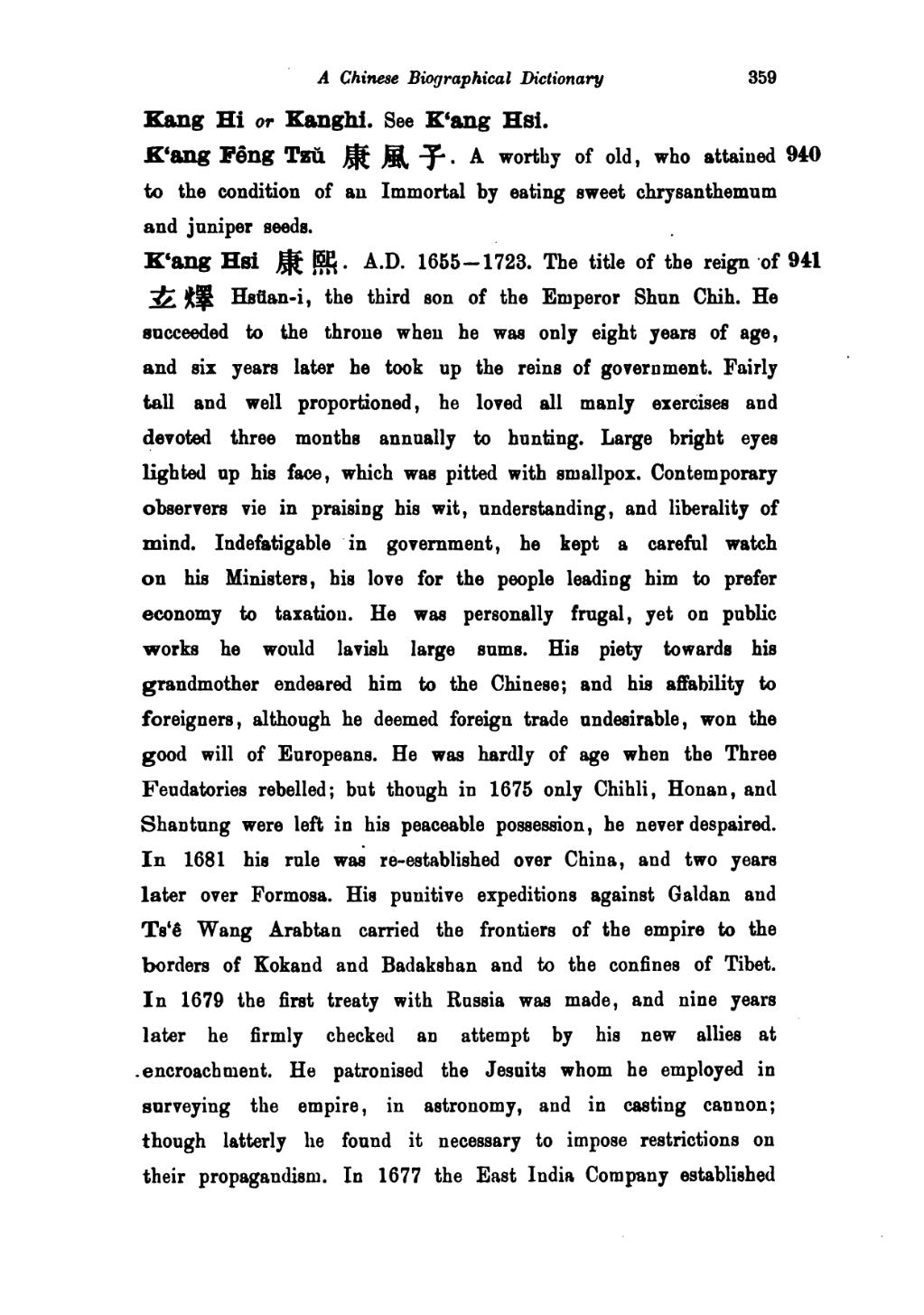Kang Hi or Kanghi. See K'ang Hsi.
940
K'ang Fêng Tzŭ. A worthy of old, who attained to the condition of an Immortal by eating sweet chrysanthemum and juniper seeds.
941
K'ang Hsi 康熙. A.D. 1655-1723. The title of the reign of 玄燡 Hsüan-i, the third son of the Emperor Shun Chih. He succeeded to the throne when he was only eight years of age, and six years later he took up the reins of government. Fairly tall and well proportioned, he loved all manly exercises and devoted three months annually to hunting. Large bright eyes lighted up his face, which was pitted with smallpox. Contemporary observers vie in praising his wit, understanding, and liberality of mind. Indefatigable in government, he kept a careful watch on his Ministers, his love for the people leading him to prefer economy to taxation. He was personally frugal, yet on public works he would lavish large sums. His piety towards his grandmother endeared him to the Chinese; and his affability to foreigners, although he deemed foreign trade undesirable, won the good will of Europeans. He was hardly of age when the Three Feudatories rebelled; but though in 1675 only Chihli, Honan, and Shantung were leftin his peaceable possession, he never despaired. In 1681 his rule was re-established over China, and two years later over Formosa. His punitive expeditions against Galdan and Ts'ê Wang Arabtan carried the frontiers of the empire to the borders of Kokand and Badakshan and to the confines of Tibet. In 1679 the first treaty with Russia was made, and nine years later he firmly checked an attempt by his new allies at encroachment. He patronised the Jesuits whom he employed in surveying the empire, in astronomy, and in casting cannon; though latterly he found it necessary to impose restrictions on their propagandism. In 1677 the East India Company established

